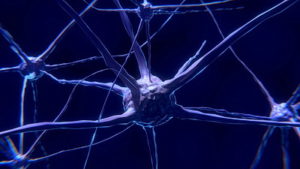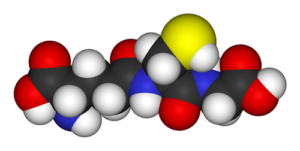Is coffee good or bad for human health? The answer depends upon your physical and mental condition and which advantage or disadvantage is of more concern to you. Some people drink coffee as a ‘wake me up’, but there is so much more to this stimulating (pun intended) drink besides caffeine.
The good and bad of coffee has been in debate for years and a highly polarized opinion has been set for this psychoactive drink. People love or they hate coffee. Very few people are out there who are not obsessed with coffee in either way. In the past, people advocate and censure coffee consumption on personal experience and merely made up facts.
However, in recent few decades, researchers have been trying to find out the good and bad aspects of coffee under the light of scientific studies. In this article, we try to dissect the use of coffee in the same context. It is important to ascertain both the good and bad aspects of coffee drinking, because, as of the latest survey conducted at the beginning of the year, around 44% American consumers stated that they drink two to three cups of coffee per day.

Good Coffee
Let’s find out some of the benefits that can be availed by consuming coffee.
A Catalyst for Weight Loss
According to the scientifically obtained nutritional chart of coffee, coffee is rich in the micronutrients of potassium and magnesium. Ample amounts of these minerals in the body regulates blood sugar levels by optimizing the function of insulin which also helps in lowering the cravings for starchy and sugary foods. With the regulation of insulin and blood glucose levels, there are also reduced chances of developing type 2 diabetes.
Reducing the Risk of Developing Cancerous Tumors
According to a research study that analyzed the effects of coffee consumption on more than 40,000 people, drinking coffee on a regular basis can reduce the risk of developing prostate cancer and endometrial cancer by 20% and 25% respectively.
Another research study indicates that increased caffeine intake in the form of coffee can reduce the danger of developing squamous cell skin cancer.
Beneficial for the Elderly
 Keeping the brain’s neuron’s synapses healthy is a major factor in maintaining effective cognitive performance, as well as maintaining the body’s nervous system. There are conditions one can do to help keep the brain’s neuron’s healthy. Some are natural. Some are voluntary, but all show signs of success pursuant to numerous scientific reports.
Keeping the brain’s neuron’s synapses healthy is a major factor in maintaining effective cognitive performance, as well as maintaining the body’s nervous system. There are conditions one can do to help keep the brain’s neuron’s healthy. Some are natural. Some are voluntary, but all show signs of success pursuant to numerous scientific reports.
Then there is another neurodegenerative factor that can affect the brain’s health and that is oxidative stress. A study conducted by Harvard University reports that regular consumption of coffee is linked to reduced chances of developing Parkinson’s disease by lowering oxidative stress and inflammation of the neurons in the brain. A close relative of cognitive neurodegeneration from Parkinson’s is dementia and more specifically, Alzheimer’s disease.
Some neurons are more vulnerable to oxidative stress than others and these neurons are usually the first to exhibit cell death during the aging process. Analogous to an apple that turns color when exposed to air, the cells in our body can eventually “rust” as we breathe. This is the process of oxidative stress and is caused by free radicals. Free radicals are unstable molecules that damage or “oxidize” cells throughout the body and there are many ways to counter the existence of these precarious molecules, mainly through the use of antioxidants, and coffee has been found to have a high level of antioxidants.
Dr. Barbara Shukitt-Hale, the Lead Scientist in the Laboratory of Neuroscience in Boston has stated: “Coffee is perhaps best known as a source of the stimulant caffeine. However, coffee also contains high levels of polyphenols and consuming phenol-rich foods can have direct effects on the brain and also reduces oxidative stress and inflammation.”
Artists rendition (left) of a redox-active sulfur atom (yellow circle) that provides antioxidant activity, while the red, blue, white and dark grey circles represent oxygen.
Conclusion: Drinking coffee to lower oxidative stress is a major benefit towards cognitive health, as well as reducing weight and fighting off some cancers.
Bad coffee

Warning About the Risks of Cancer?
In March 2018, the state of California won a preliminary decision from a California superior court judge that they must put a label on coffee which states that it might be cancerous. It primarily circles around the level of acrylamide that coffee may contain; however, this research is controversial and the lawsuit is preliminary in nature. Where the facts are more substantial is listed below.
It Can Result in Insomnia and Restiveness
Consuming an excessive amount of coffee can produce psychological effects that might lead to agitation and sleep deprivation. Some people are inherently sensitive to the psychoactive substance present in coffee, most familiarly called caffeine.
Pregnancy Complications
According to a research paper published in the British Journal of Pharmacology, coffee can induce problems for developing fetuses in the pregnant mother. When it reaches the fetus through placenta can have adverse effects on the undeveloped metabolism of the unborn child.
Addictive Tendencies
According to a research study published in the Journal of the American Medical Association, people who regularly consume around 350 milligrams of caffeine exhibit the signs and symptoms associated with drugs notorious for substance abuse. For instance, they possess a never-ending desire for coffee and experience the signs of withdrawals when they try to limit their consumption.
Digestive Acidity and Ulcers
There are various acids present in coffee beans. With excessive consumption, they can increase the acidity in the digestive system and can also damage the internal lining of the stomach and small intestine that leads to the ulcer.
People who are suffering from high cholesterol are advised to consume filtered coffee. Filtered coffee is the one with beans that are free of most of the LDL in it.
What path should be taken?
 From the above discussion, one can deduce that the good and bad of drinking coffee actually boils down to the degree of its consumption, as well as your physical condition to sustain it, but in general, consuming coffee in moderation may be the way forward.
From the above discussion, one can deduce that the good and bad of drinking coffee actually boils down to the degree of its consumption, as well as your physical condition to sustain it, but in general, consuming coffee in moderation may be the way forward.
With that said, be mindful of your daily consumption, especially if you are pregnant. But looking at the big picture, it is the opinion of this author that the good coffee outweighs the negative for the average, non-pregnant healthy American adult.
Still not sure? Speak to your nutritionist or medical professional who knows you personally and can advise on your coffee consumption better than any Internet article can do.
